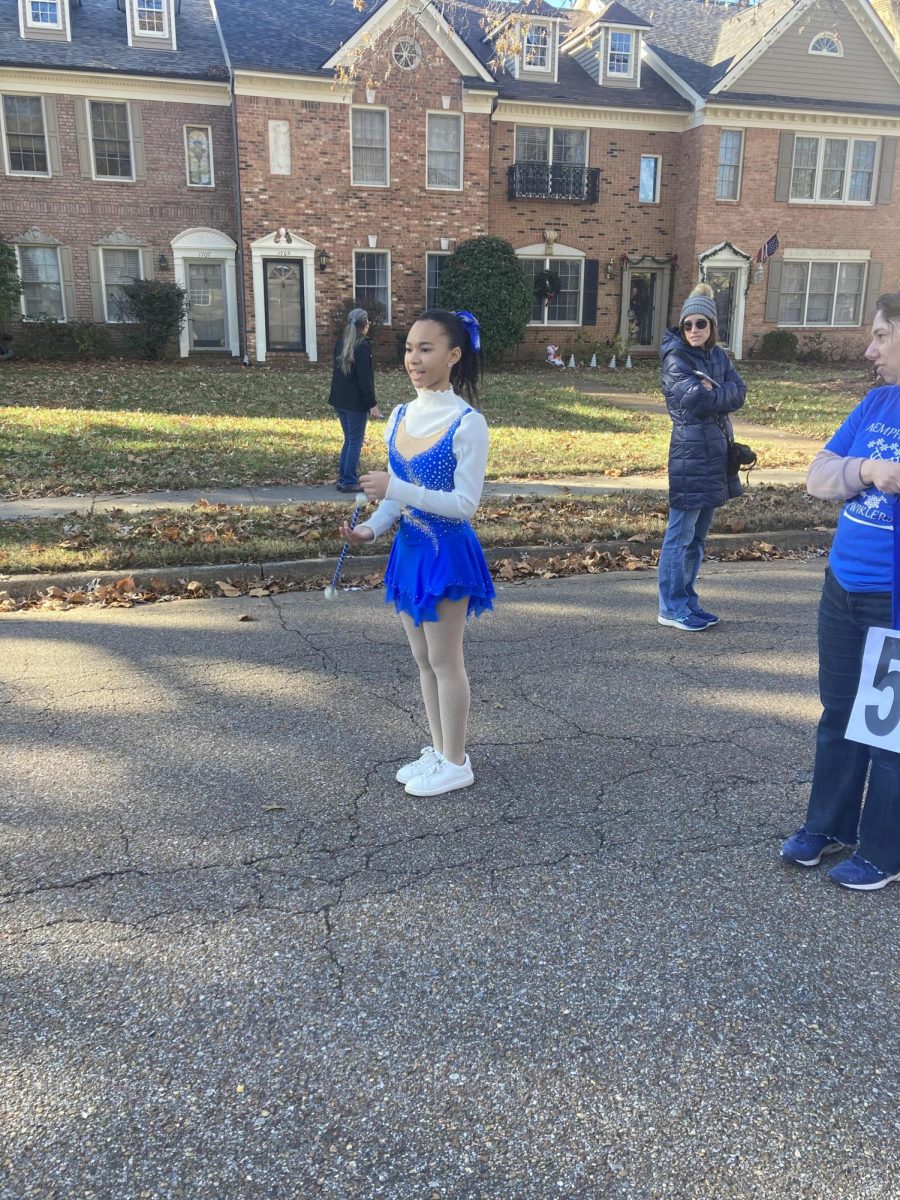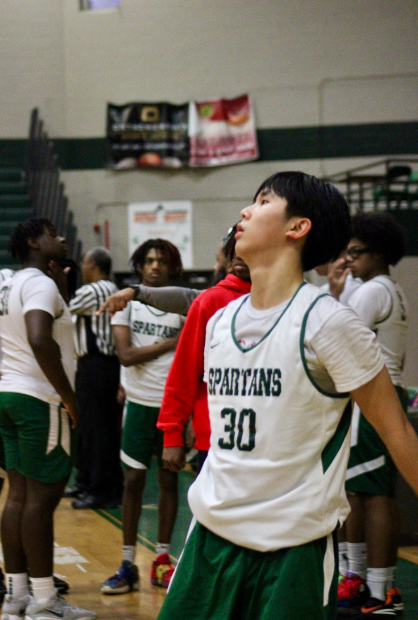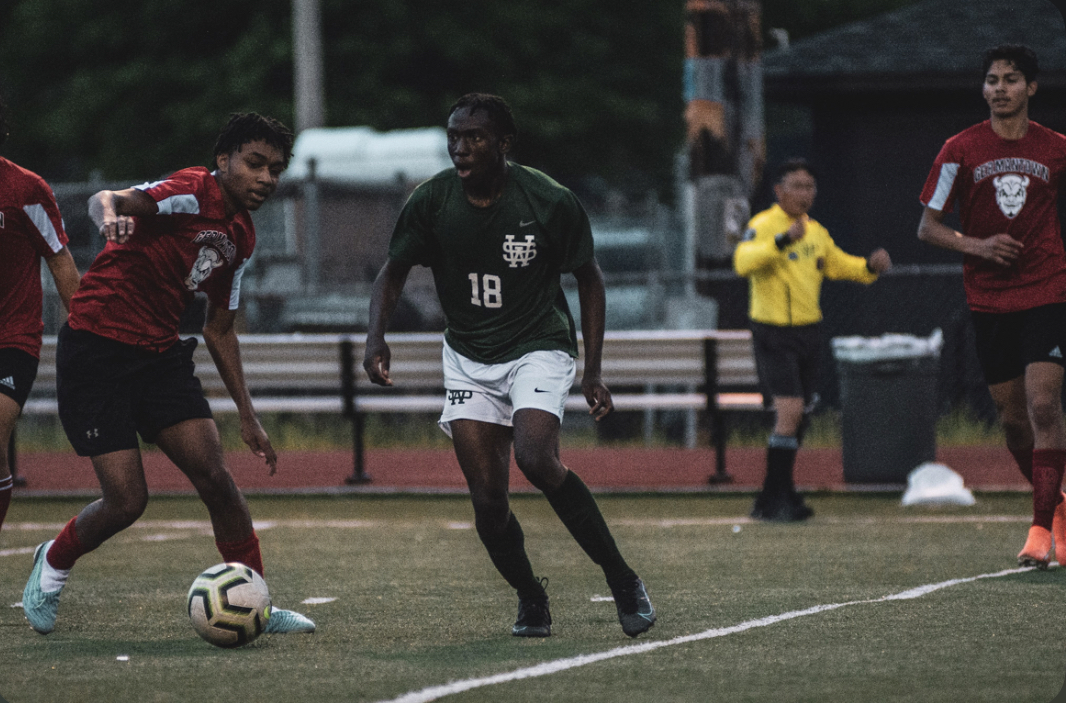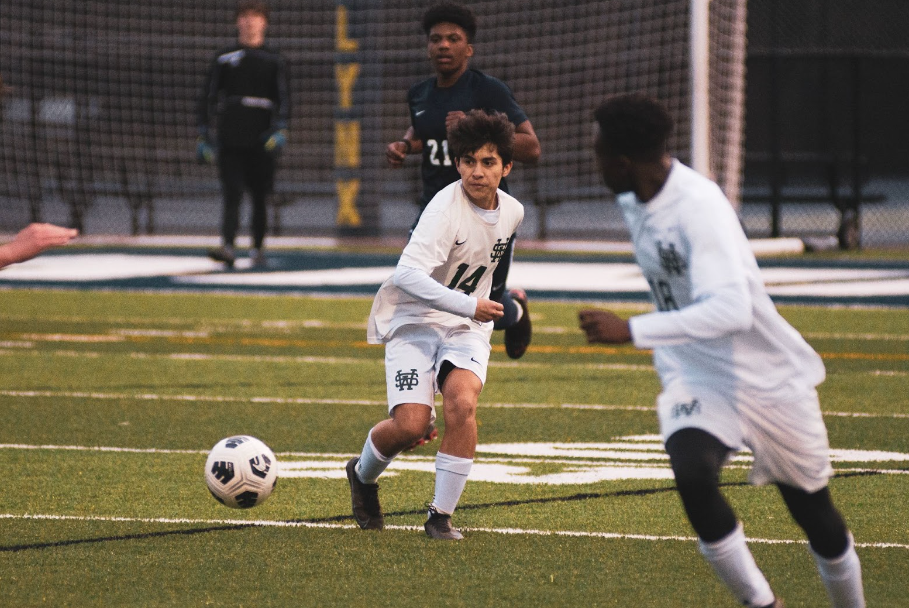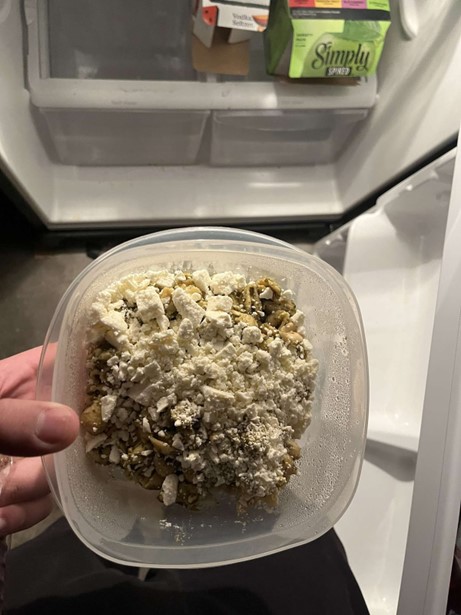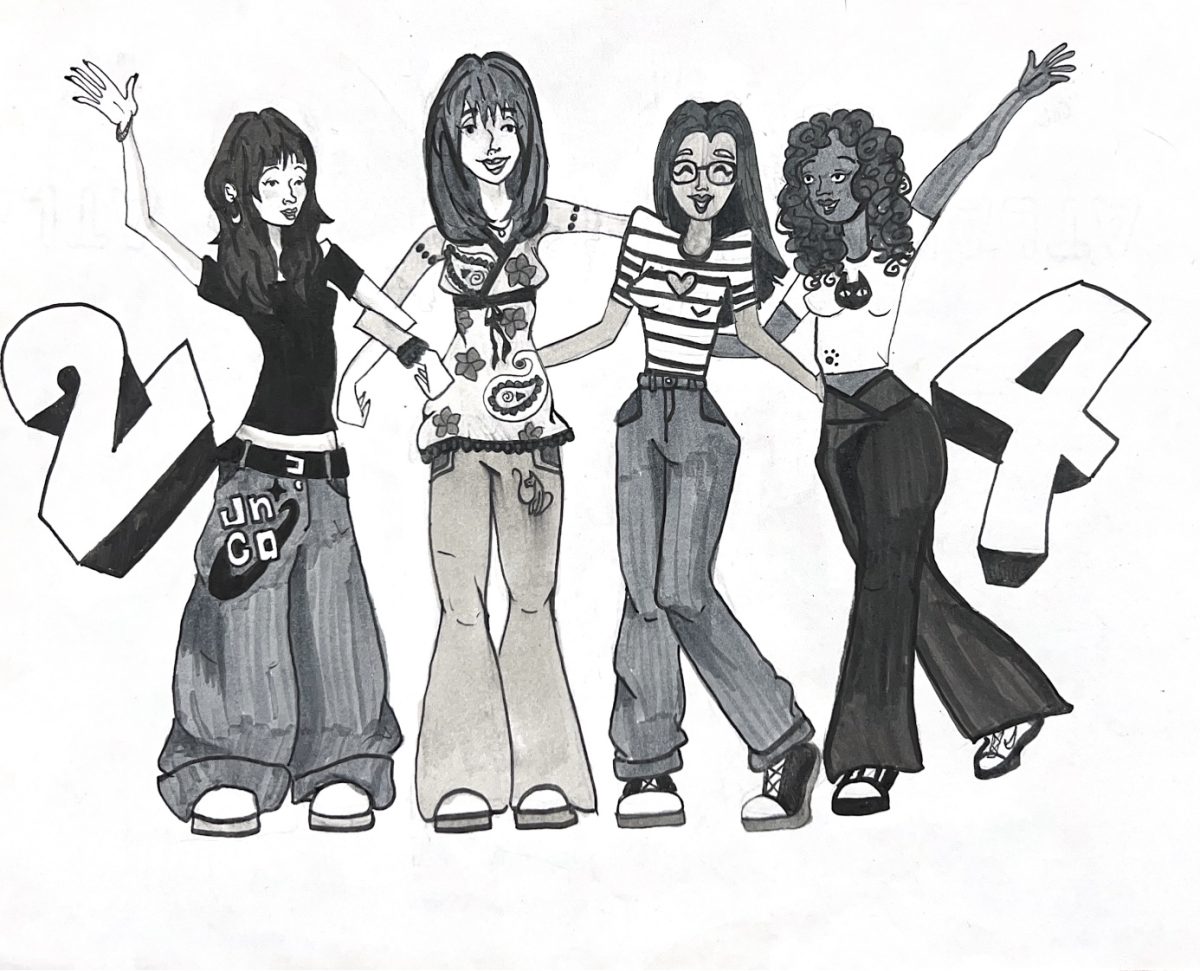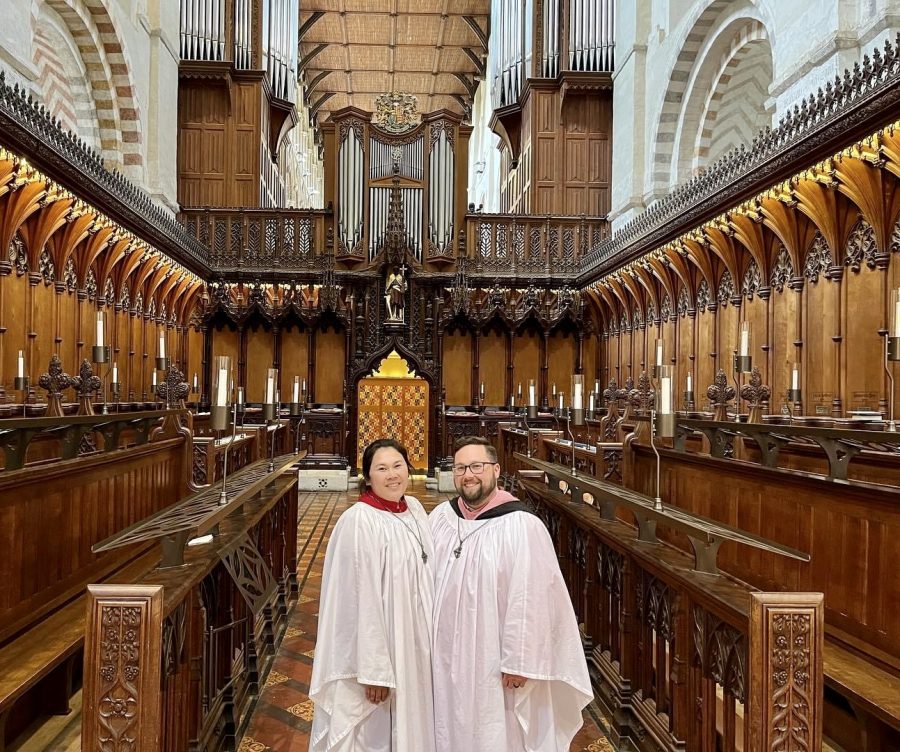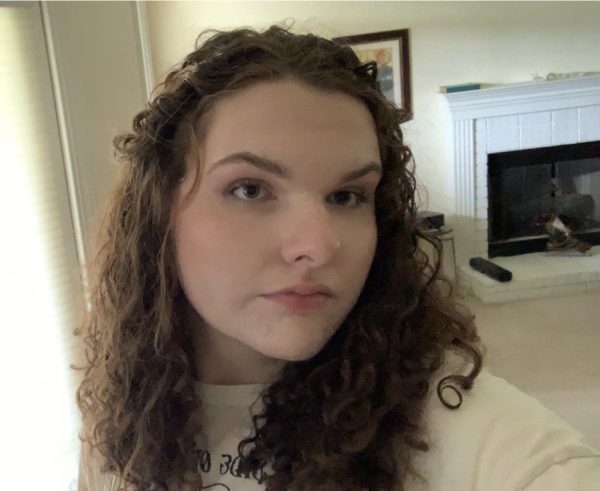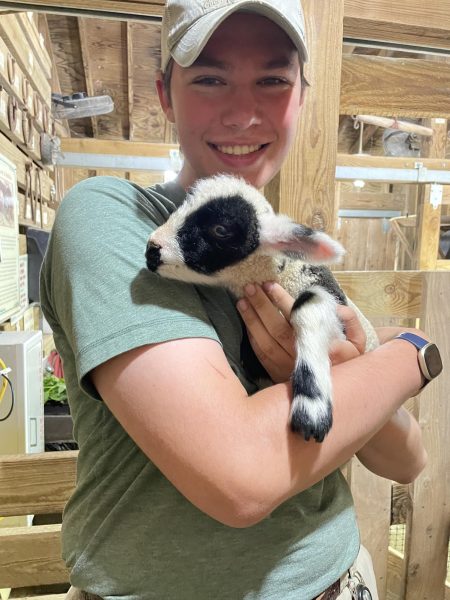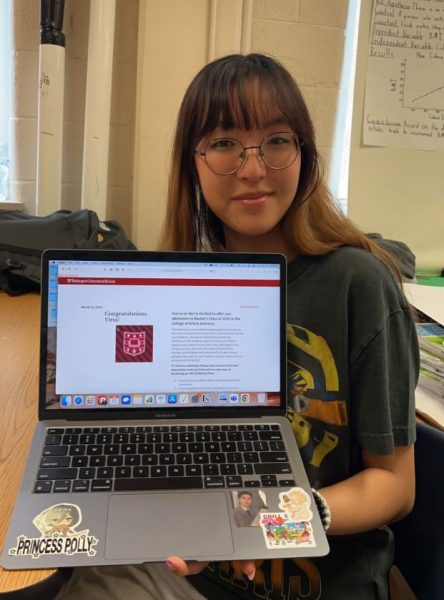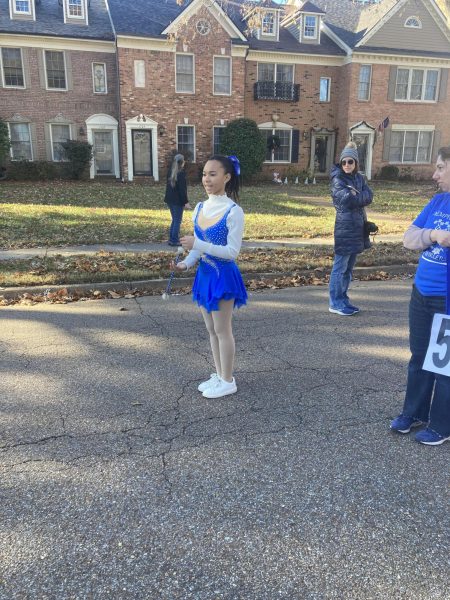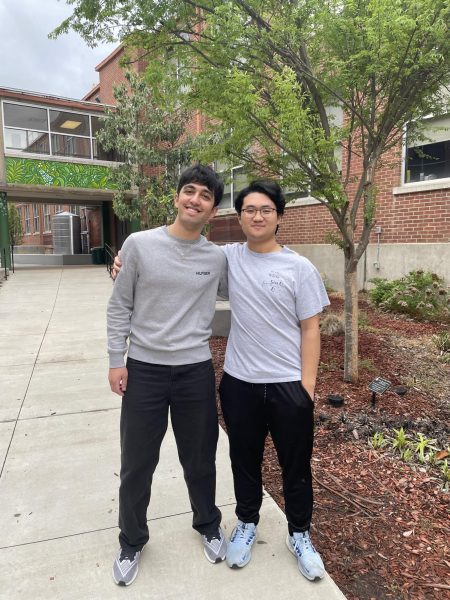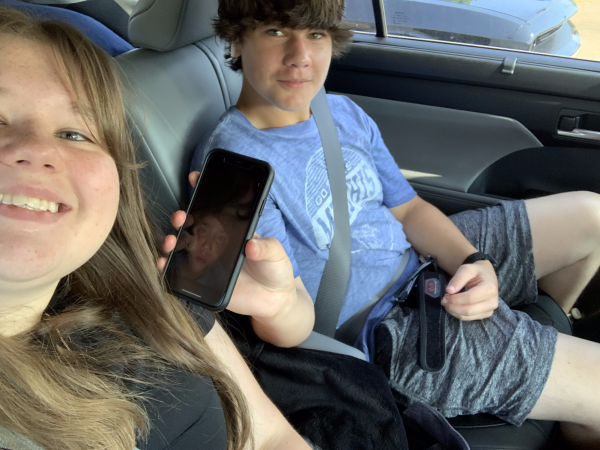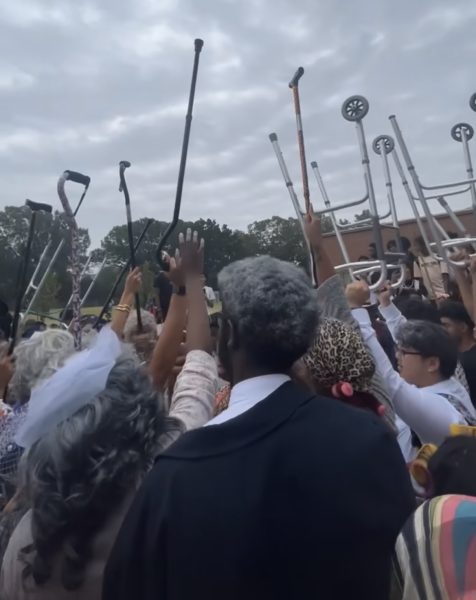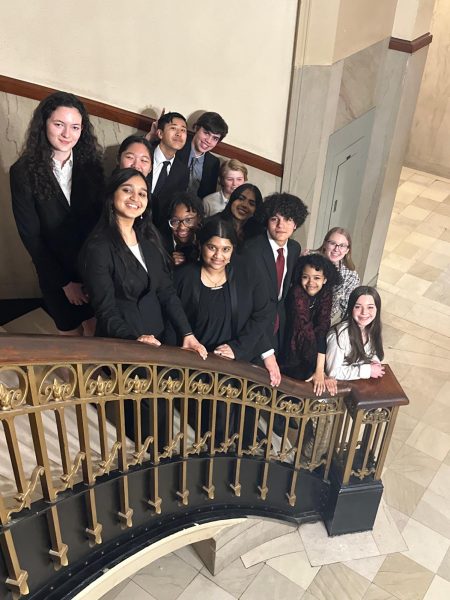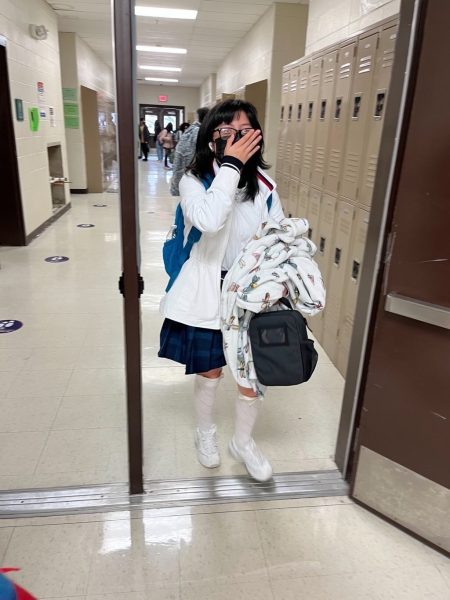The four horsemen of the music-pocalypse
JOSEPH POWELL//USED WITH PERMISSION
Joseph Powell stands with his wife in Saint Albans Cathedral in St. Albans England. Choir allowed Powell to travel the world as a musician in residency with his church, Calvary Episcopal.
Rehearsing, conducting and teaching — the White Station music teachers devote their lives both in and out of school to the world of music. But behind school doors, who are these teachers? How did they get here, and why do they stay?
Brian Sims
Brian Sims has played music from a young age. Over time, he has expanded his range of instruments and can now play every woodwind instrument he teaches in band at White Station. Before coming to Memphis, Sims split his time between his day job of baking and his music at night, which led to many long and sleep-deprived nights. While playing on cruise ships, Sims found a community of musicians to learn from while traveling all over the world.
“[They’re] a community,” Sims said. “It’s people who know people who help [teach] you … how to take care of things, what to wear, how to act, how to dress, where to be, what to do, how to get food. It seems silly, but it’s huge. Your time is tight, and money can get tight, and you have a lot of … things to worry about. Having an older set of mentors is really helpful.”
Sims extends his passion for music to his students, and he even keeps a packet on his door that lists all the main musicians for each instrument, past and present, that students should check out. Every Sunday, Sims plays lead alto saxophone with the Memphis Jazz Orchestra (MJO), a large band of jazz musicians who have been playing at Alfred’s on Beale Street for about 30 years. Sims encourages his students to seek out music and performances in Memphis, and some of his students have even joined in on performances with the MJO.
“There’s intuitiveness [to jazz], … but there is a very logical way of approaching it, just like there’s a logical way of approaching classical music,” Sims said. “In its own weird way, it’s very akin to math in its logic; it’s just not formulas and word problems, but … it’s got to be something that happens in the moment [in response to] to what’s going on around you.”
Sims mentors his students so they improve on their instruments, even mentoring after school. Creating music has always been a major part of his life, and he wants to share that experience with his students.
“I’ve known music my entire life … the first things that I heard [that were] musical were just amazing to me, so I can’t imagine life without it,” Sims said. “[T]o me, it’s like shutting off music [creates] a void.”
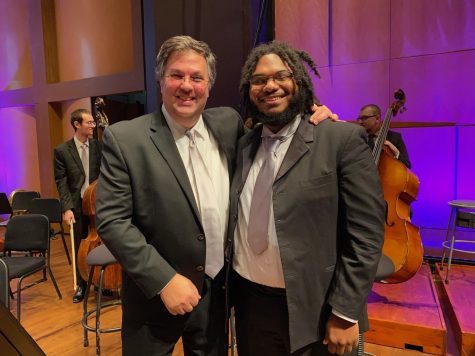
Dr. Andrew Palmer
Dr. Andrew Palmer’s journey with music started from the young age of eight when he followed in his mother’s footsteps and began taking piano lessons. It was two years later when he would discover the instrument that would follow him for over 40 years: the double bass. His devotion to music carried over into his education, leading Palmer to pursue a masters degree from the Peabody Conservatory and a doctorate in musical arts with a focus on double bass performance.
“At Interlochen Music Camp, [in the summer before 11th grade] … I was not the best bass player there … I came away thinking … if there’s that many people in front of me at this camp … maybe this isn’t for me,” Palmer said. “And then when I got back to high school in 11th grade, it was like … this is the thing I want to do.”
In his professional life, Palmer has several different relationships with strings. Palmer is the fourth chair double bass player for the Memphis Symphony Orchestra, which concentrates four rehearsals and two concerts into roughly one week per month. The other half of his job is his work with students, ranging from elementary school beginners to experienced high school musicians. Palmer teaches the intermediate and advanced orchestras at White Station, a beginner strings class at several elementary schools and bass to some individual players from other high schools.
“When we’re in there together just playing and making music together, I’m still a teacher, they’re still the students, but it becomes more like colleagues,” Palmer said. “[And with] elementary, you get to teach them something new every class … every day there is progression that they can see.”
It is through teaching that Palmer has forged close connections with students, some of which he begins teaching in elementary or middle school and sees through their graduation from high school. Though Palmer has been teaching for almost 30 years, he has no plans to retire soon because his students bring him back every year.
“I really like what I’m doing … I know other teachers that are like ‘Yeah, I’ve done my time,’ [but] I have these kids for three or four years … there’s a growth that I can see that I can help them through over the years, so there’s always kids to come back to,” Palmer said.
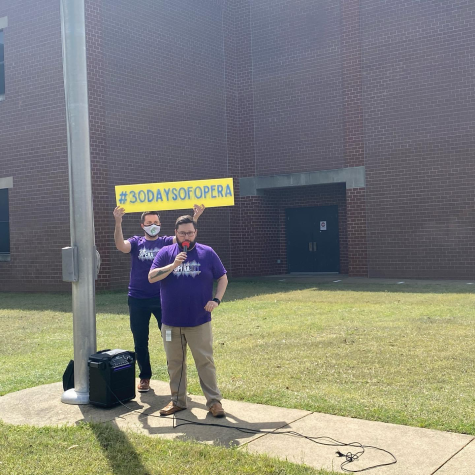
Daniel Massey
Daniel Massey realized his love for choir in his senior year of highschool when he joined the school’s choir program as the only male student. Many doors opened for Massey as he developed his skills as a musician through singing and guitar-playing. After realizing he could pursue music as a career, Massey decided to devote the rest of his life to teaching others to love the performing arts with the same passion he held.
“I found so much fulfillment in musical expression,” Massey said. “I took music theory in college … and I thought ‘Maybe I can help other people enjoy [music] as much as I have.’”
When Massey moved to Memphis, Joseph Powell introduced him to Opera Memphis where Massey joined the opera chorus and eventually became a performer in both large and small roles. Opera Memphis allowed Massey to express himself through music in ways he was never able to before. Whether it be as a performer or a member of the chorus, he felt embraced by the opera community.
“Opera Memphis is really like a family,” Massey said. “It was completely welcoming … especially for me as the performer.”
The workload is strenuous, especially close to the performance date. In his most recent role in Tosca, Massey spent the last two weeks before the performance rehearsing from 7 p.m. – 11 p.m. every day.
“Rehearsals are really intense, but … it’s all worth it once you’re finished and when you’re actually on stage,” Massey said.
As a teacher, he combats stress of heavy workloads by communicating clearly with his students. He knows that his students understand that he loves what he does, but to accomplish quality performances, all of his energy is spent rehearsing for Opera Memphis, which can leave him tired throughout the day.
“The students do respond very well [to my lack of energy], because after all students are people, and they understand [I am tired],” Massey said.
In addition, Massey is the assistant coach for the baseball team, which vastly differs from career as a musician. Although the jobs may be different, he understands the nerves it takes to stand up to bat, because he too must perform for a crowd.
“When you stand [to bat], and everybody is looking at you, and you’ve got to hit — that is the most nerve-wracking thing you could comprehend,” Massey said. “It’s really similar when it comes to opera because everyone is listening to you.”
As a performer, Massey finds that performing art, just for art’s sake and allowing an audience to appreciate art is the most pleasing thing both as a performer and as a choir director.
“I feel like I’ve been given a talent, and I really feel a great fulfillment in sharing that with an audience,” Massey said.
Joseph Powell
Joseph Powell was introduced to the world of music at a young age. Both of his parents are professional musicians, leading him to sing in a church choir since he could walk. When he reached highschool, he continued to sing in two church choirs and two school choirs.
After receiving a full ride to the University of Southern Mississippi for music, Powell took every opportunity to strengthen his connection to music.
“I sang in several choirs in college, basically all of the ones that I could sing in,” Powell said.
Powell’s degree in music education brought him to teach at White Station in 2015, but he does not limit himself to the school. To continue performing outside of school, Powell operates as Memphis Symphony Chorus’s rehearsal assistant, sings as a staff member for Calvary Episcopal Church and has joined Opera Memphis as of 2015.
“[Performing] was a lot of fun; I had a great time,” Powell said. “I wanted to do more so … anytime there was an opera with a chorus in it — I was in it.”
Practice for rehearsals can range from four to 12 hours a week outside of Powell’s regular working hours. Powell is used to the long and sleepless nights, but grueling practices can make early mornings seem daunting.
“I can survive on a little sleep,” Powell said. “I have been [practicing late] for as long as I can remember, but when things go wrong … that’s when 7:15 [a.m] comes really early.”
Powell is currently a member of four choirs, and his love for the arts has allowed him to travel to Saint Albans Cathedral in England for a residency. For 10 days, Powell was able to sing and explore the United Kingdom as a member of the choir.
“If you were to ask me when I was in college what kind of opportunities do you get from being in a church choir, traveling overseas … would not have been an answer I would have given you,” Powell said.
But the opportunities that singing has given Powell are not what he loves most about performing. He knows the responsibility he has to affect others with music, and this is what makes him love the art so much.
“Knowing that you potentially turned somebody’s day around, turned someone’s week around … that’s a big responsibility for performers,” Powell said. “You don’t know how you’re going to affect any one person in the audience.”
Your donation will support the student journalists of White Station High School. Your contribution will allow us to purchase equipment and cover our annual website hosting costs.








